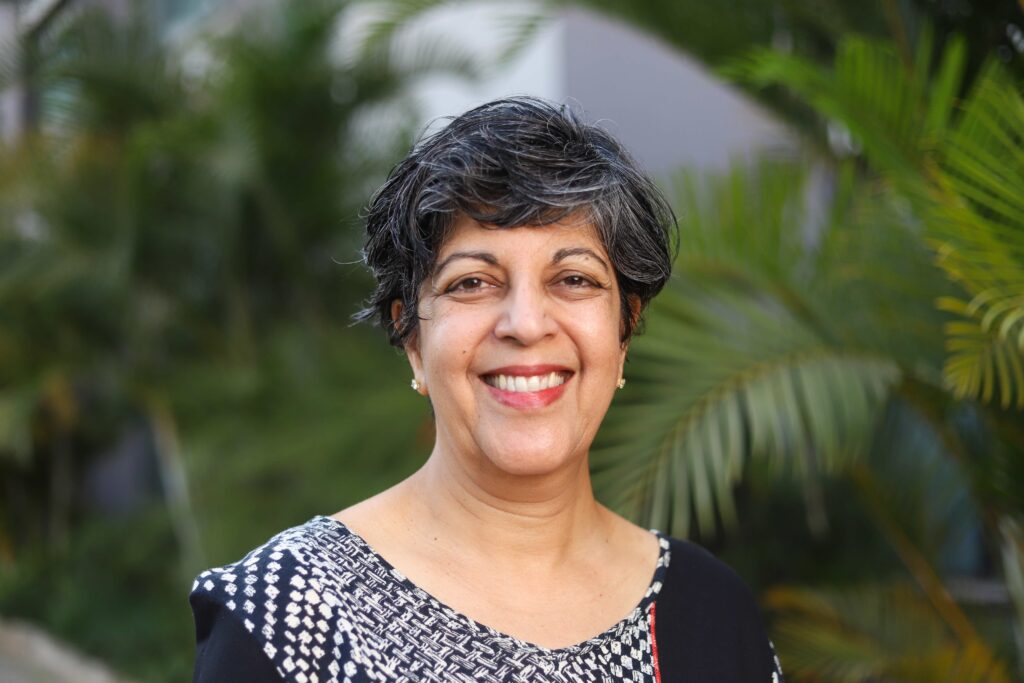A few days ago, the President and CEO of global reproductive justice organisation, Ipas, Dr Anu Kumar was in conversation with Honorary Associate Professor Sally Moyle from the ANU Gender Institute. The pair discussed the impact of Roe v. Wade on the gains of 50 years and the assault on women’s and girls’ rights today.
Dr Kumar penned her reflections on the issues discussed at the event for BroadAgenda. She throws down the gauntlet, calling on Australia to “…step onto the world stage to champion abortion rights and access for all.”
I am a reproductive justice warrior. I have been for nearly all my adult life, and for the past 21 years, I’ve been in a leadership role at Ipas, a global reproductive justice organization that works to increase access to abortion care, contraception, and sexual and reproductive rights around the world. I’ve seen a lot of success in this area — since the 1970s, over 100 countries have liberalized their abortion laws including Ireland, Benin, Nepal, and Argentina.
Ipas, working with partners, has been a part of many of these victories and, importantly, translating those legal changes into actual services. There is one very notable exception to this progressive trend: the United States.
I came to Australia to see how the progressive, human rights-oriented Australian government was reacting to a “new world order” on reproductive justice.
While here for two weeks, I met with a range of government officials and members of civil society. I found an eagerness to understand the global ramifications of a post-Roe world, coupled with uncertainty on what Australia’s role in this new landscape should be. Some described a foreign affairs apparatus that was suffering from PTSD from a previous regime of anti-rights politicians. Others said that health security was of paramount importance in a post-Covid world, while still others felt that Australia does its share by supporting several sexual and reproductive health and rights groups already.
What I did not hear was anyone grappling with what the demise of abortion access in a global superpower means for the world. Admittedly, the United States has not been a leader in this area for decades with foreign policies like the Helms amendment firmly in place since 1973, and the Global Gag Rule swinging back and forth depending on which political party is in power. And yet the U.S. government remains the largest family planning donor globally and hugely influential in humanitarian relief work, global health, multilateral organizations, and more.
At Ipas, we are seeing the impact of the overturning of Roe v Wade around the world, particularly the strong wind in the sails of U.S.-sponsored anti-rights groups.
India, which has had legal abortion since the 1970s, saw its first ever anti-choice march in New Delhi. In Nigeria, Uganda, Tanzania, and Ethiopia, anti-abortion groups point to the fall of Roe as justification for their activities. And in Ethiopia and Kenya, some health professionals have stopped providing abortion care.

Dr Anu Kumar is a a reproductive justice warrior. Picture: Supplied
In the face of such an aggressive anti-rights movement, we need all the help we can get, including from the richest country in the Pacific and one of the richest countries in the world. As Australia has decriminalized abortion across the country and is looking to bridge gaps in access, the time is ripe to step onto the world stage to champion abortion rights and access for all.
I heard that a new international development policy will be released soon and yet no one expects it to mention sexual and reproductive health, much less contraception and abortion. Let me clear: there is ample data to show that family planning is an excellent investment, as well as critical to enabling women and girls to pursue education, employment, and healthy lives. It is a cornerstone of development.
Reproductive rights are also foundational to gender equality, a theme that is expected to be part of future Australian aid efforts, though so far it has not included sexual and reproductive health and rights.
What should Australia do?
- Say the word abortion in official documents and speeches. President Biden used the word once in a press statement 224 days into his term when the abortion ban in the state of Texas went into effect and then said it again after 468 days in office when the Supreme Court decision to overturn Roe was leaked. People noticed. Words matter and hiding behind vague language about rights just leaves the matter unresolved.
- Create space in the aid apparatus to address this issue head on. There are many who would assist and support the Australian government in this. You are not alone.
- Direct Australia’s diplomats around the world, including those in charge of bilateral aid programs, to include sexual and reproductive health and rights, including abortion, in their programs and dialogs with governments. There is widespread fear that this will be perceived as a “Western agenda.” In fact, there are local feminist organizations everywhere that need to be nurtured and supported.
- Be part of the global movement for reproductive justice—align efforts to broaden access to abortion domestically and globally. A major flaw in the U.S. reproductive rights movement is how insular it is. Australia can learn from the experience of other countries and contribute to important global lessons.
- Assert Australian values. On multiple occasions, Minister Penny Wong has affirmed Australia’s commitment to gender equality including through the new international development policy. There can be no gender equality if women cannot control their bodies.
- Connect the dots on what anti-rights groups are doing. It’s not just about abortion or LGBTQI+ rights or comprehensive sexuality education; it’s about all human rights—the core of democracy itself. We can’t cower in the face of bullies. Let’s stand strong and united and push back.
At Ipas, we have been working on abortion access for 50 years because it is a matter of public health and human rights. Sadly, women and girls continue to die needlessly from unsafe abortion and millions are injured. It doesn’t have to be this way. I urge all Australians to join us in the fight for reproductive justice.
- Picture at top: Washington, DC USA May 3 2022: Protesters gather at the US Supreme Court after a report that the count will overturn Roe vs Wade, ending the constitutional right to abortion. Picture: Drew Petrimoulx/Shutterstock
Dr Anu Kumar is President and CEO of Ipas, an international NGO that works to advance reproductive justice by expanding access to abortion and contraception. She is internationally recognized as an advocate for women’s rights and a thought leader in global health.





